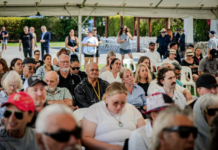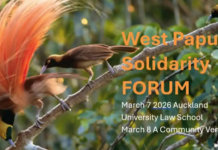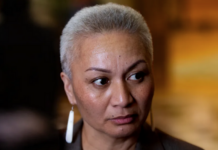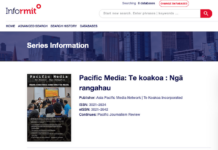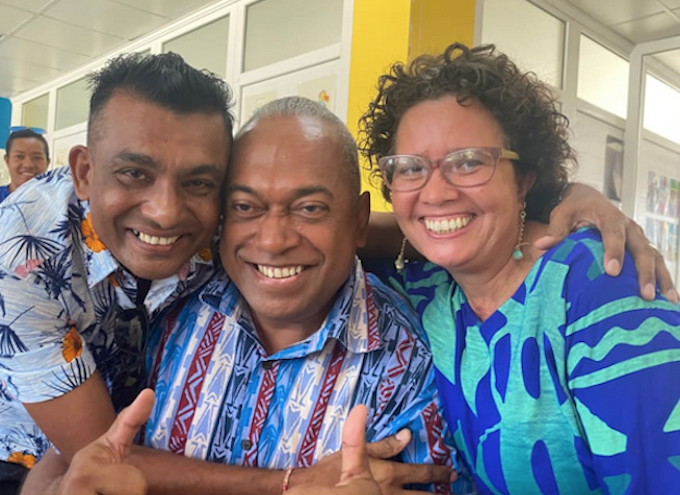
By Dominique Meehan, Queensland University of Technology
In the expansive landscape of Pacific journalism, one magazine stands for unwavering command and unfiltered truth. Islands Business, with its roots deep beneath Fijian soil, is unafraid to be a voice for the Pacific in delivering forward-thinking analysis of current issues.
Established in Fiji’s capital, Suva, Islands Business has carved out a niche position since the 1970s and is now the longest surviving monthly magazine for the region.
With Fiji’s restrictive Media Industry Development Act (MIDA) only repealed in April 2023 following a change in government, the magazine can now publish analytical reporting without the risks it previously faced.
With a greater chance for these stories to shine, communities have a greater chance that their voices will be heard and shared.
Islands Business general manager Samantha Magick notes the importance of digging below the surface of issues and uncovering injustices with her work.
“I feel like that time where you have to be objective and somehow live above the reality of the world is gone,” Samantha says.
“Quite often I can go into a story thinking one thing and come out saying, ‘I was completely wrong about that.’
‘Objective openness’
“Maybe it’s about going in with an objective openness to hear things, but then saying at some point ‘we as a publication, platform or nation should take a position on this.’”
Magick provides the example of the climate change issue.
“Our position from the start was that climate change is real. We need to be talking about this, we need to be holding these discussions in our space,” she says.
“As long as you declare that this is our position and where we stand on it, why would I give a climate denier space? Because it’s going to sell more magazines or create more of a stir online? That’s not something that we believe in.”
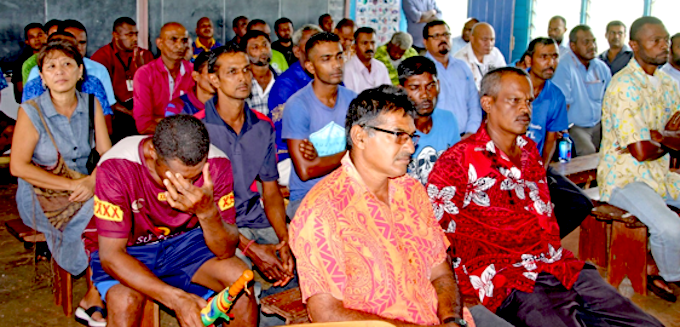
Despite the magazine’s dedication to probing coverage of business and social issues, new waves of digital journalism continue to affect its reach.
With an abundance of free news readily available online, media outlets around the world have seen a significant reduction in demand for paid content, recent research shows.
Despite this being a global phenomenon, the impact appears to be harsher on smaller outlets such as Islands Business compared to large media corporations.
‘Younger people expect to not pay’
“Younger people expect to not pay for their media content, due to having so much access to online content,” Magick says.
“We need to be able to demonstrate the value of investigative reporting, big picture sort of reporting, not the day-to-day stuff, and to be able to do that, we need to be able to pay high quality reporters and train them up in future writing.”
Islands Business’s newest recruit, Prerna Priyanka, agrees that this very style of reporting attracted her to work for the publication.
“Their in-depth writing style was something new for me compared to other media outlets, so learning and adapting as a rookie journalist was something that drew me to work with them,” Prerna says.
Prerna notes she has some say over the topics she can cover and strives to incorporate important issues in her work.
“I believe it’s essential to shed light on pressing issues like gender equality and environmental sustainability, and I actively seek out opportunities to do so in my work,” she says.
As Islands Business looks forward, Samantha Magick aims to ensure the diverse Pacific voices remain centred in every discourse and are an active part of the magazine’s raw, unfiltered storytelling.
Dominique Meehan is a student journalist from the Queensland University of Technology (QUT who travelled to Fiji with the support of the Australian Government’s New Colombo Plan Mobility Programme. This article is republished by Asia Pacific Report in collaboration with the Asia Pacific Media Network (APMN), QUT and The University of the South Pacific.




